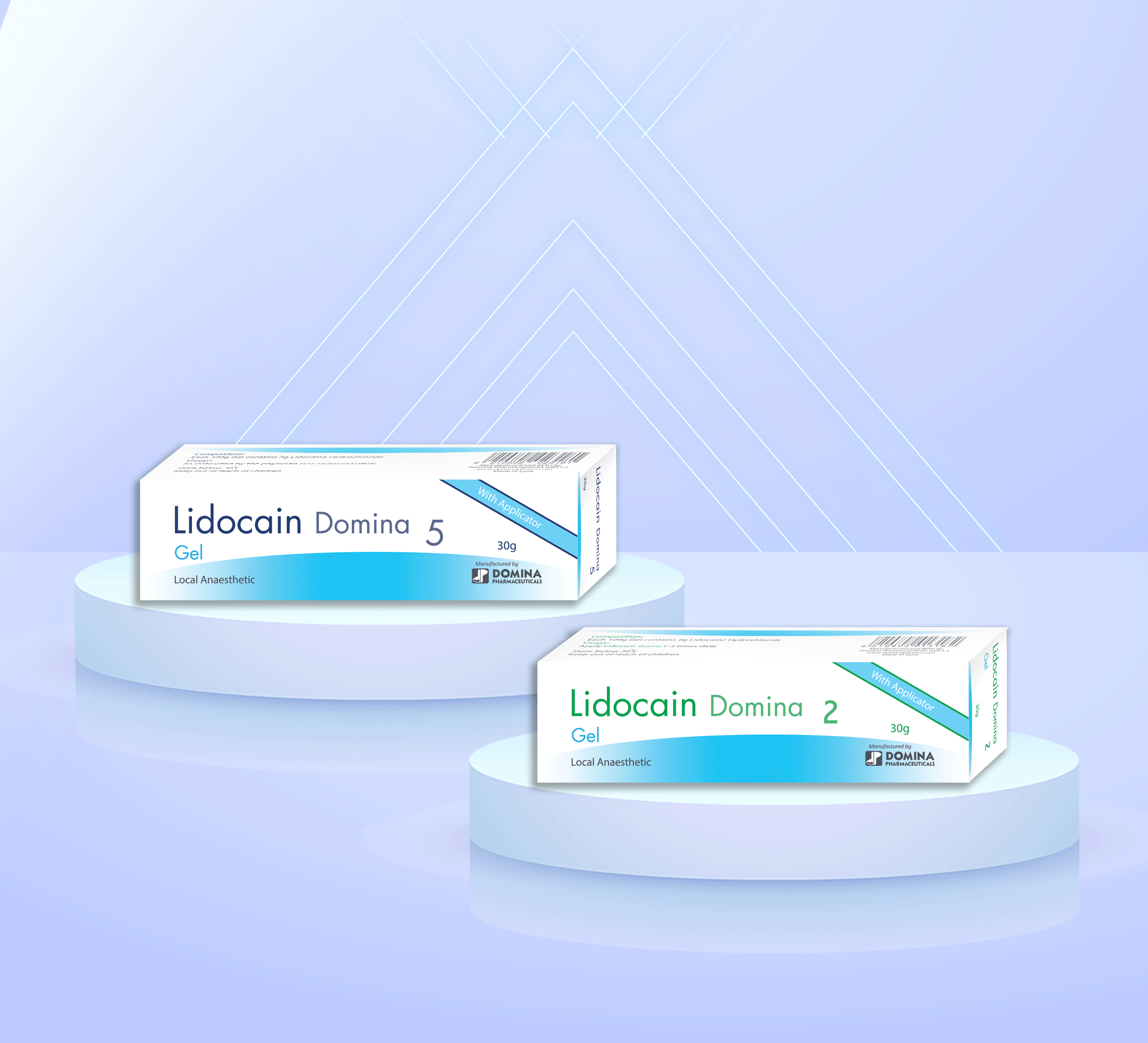
Composition:
Each 100g Lidocain Domina Gel contains 2g Lidocaine (as Hydrochloride)
Each 100g Lidocain Domina Gel contains 5g Lidocaine (as Hydrochloride).
Mechanism of action:
Lidocain Domina is an amide local anaesthetic agent with a fast onset, blocking peripheral nervous conduction.
Pharmacokinetic properties:
Lidocaine is readily absorbed from mucosal surfaces, especially if inflamed. The plasma half-life is about 10 minutes following an intravenous dose, with an elimination half-life around 2 hours.
Lidocaine will reach all tissues including transplacental transfer.
Indications:
- Local anaesthesia for topical use including, surface anaesthesia of gums in dentistry.
- Pain relief from anal fissures, pruritis ani, pruritis vulvae, haemorrhoids, herpes zoster and herpes labialis.
- For symptomatic relief of sore nipples in nursing mothers.
- As a lubricant in proctoscopy and cytoscopy.
Usage:
Cutaneous/oromucosal use.
Adult, elderly and children:
- Dentistry: Apply to dry gum and rub gently.
- Nursing mothers: Apply to the nipples using a small piece of gauze, wash off immediately before next feed.
- All other indications: Apply 1 to 2 ml when required.
Avoid long-term use which may lead to hypersensitivity.
Side effects:
Allergic effects are uncommon to lidocaine but have been recorded, usually following parenteral administration. Hypersensitivity may occur in long-term topical use.
Contraindications:
- Known sensitivity to lidocaine or other amide local anaesthetics.
Special warnings and precations for use:
- This product is not intended for use with aseptic techniques.
Interactions:
Although absorption of lidocaine from mucous membranes is marked, doses for topical anaesthesia are low. However, the following interactions should be considered:
Cimetidine and propranolol may inhibit the metabolism and thus enhance lidocaine toxicity.
Use In Pregnancy and Lactation:
The product should not be used during the first trimester of pregnancy or during lactation.
In common with other drugs, This product should not be used in early pregnancy unless the benefits outweigh the potential risks.
Effects on ability to drive and use machines:
No or negligible influence. Lidocaine administered parenterally may cause CNS stimulation, dizziness, nausea followed by depression and drowsiness.
Overdose:
Unlikely from topical use even if whole contents of a tube (1500 mg lidocaine) has been ingested - oral bioavailability is low but hypotension and heart block may occur. Employ appropriate resuscitation.